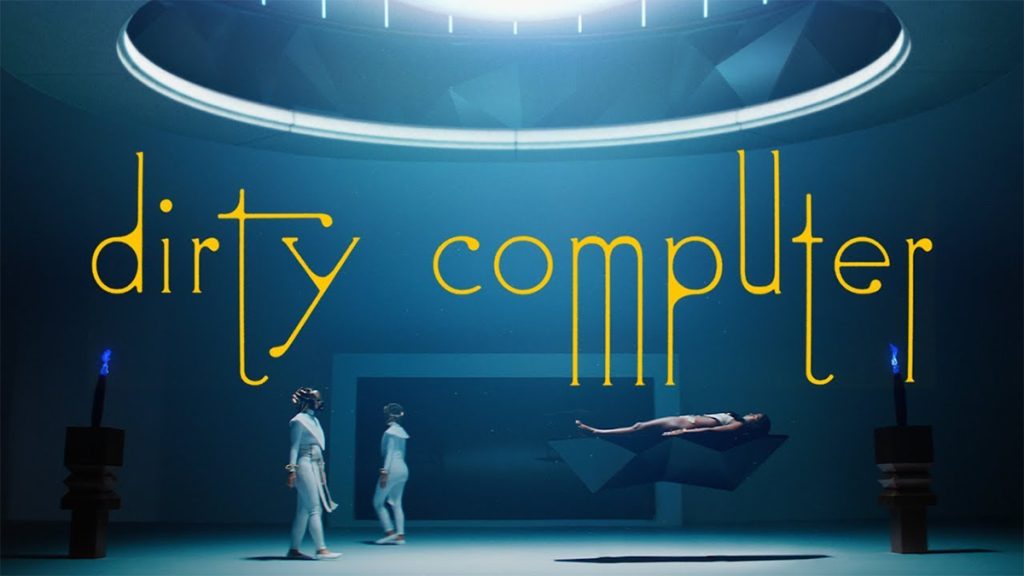
Haraway offers a vision of a post-gender world in which identity is fluid. This vision can be seen within Janelle Monáe’s album “Dirty Computer” which depicts a dystopian world where non-conforming individuals are persecuted. Firstly, in the “Cyborg Manifesto” essay she informs the reader that there are many binaries within western culture. For example, like the concept of male and female; it’s either one or the other, not both and not definitely not neither. This social structure creates the means for power dynamics within society. With power dynamics comes inequality, social isolation, and gender supremacy. When addressing cyborg entities she expresses the fact that they cannot be categorized within these bounds. A cyborg is a hybrid entity which is fluid and does not represent a binary gender. Some of these ideas can be seen in Janelle Monáe’s album. My favorite song on her album, “I Like That”, tries to break down societal norms affecting women. Women are supposed to exude beauty and have this specific sort of feminine identity/presence. She says, “I don’t care what I look like, but I feel good”. She realizes that as a lady she is looked at and judged on a daily basis because of her gender. However she doesn’t care about what others have to say. She believes that feeling good about yourself comes from within, not from the outside. As long as you feel good inside then that is all that matters. Another example from that song is “And I like that, I don’t really give a f*ck if I was just the only one / Who likes that”. Janelle is saying she doesn’t want to conform to the social norms within her society. This lyric may not clearly state gender but it expresses her fluid identity and individuality. Both Haraway and Janelle Monáe come to the same conclusion on their view of a post-gender world where identity is fluid and somewhat nonbinary.
Published by